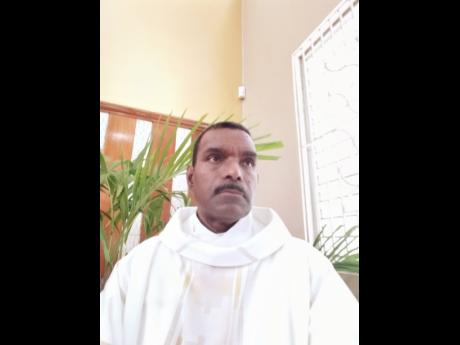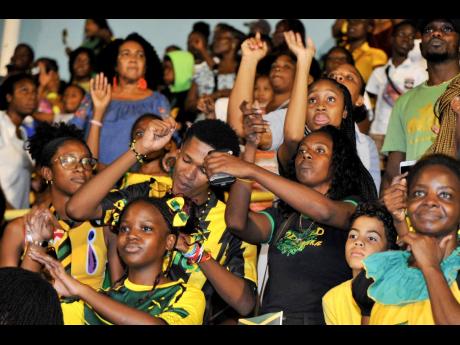Jamaica 61: Proud and Strong (Part 1)
IT IS most fitting that readers of Family and Religion engage, thoughtfully, the National Independence Sermon preached in the New Testament Church of God, Waltham Park Road, on July 30, under the Theme: ‘Jamaica 61: Proud and Strong’, and informed by the text of Numbers 14:6-10a. The preacher was The Most Rev Howard Gregory, Archbishop of the West Indies.
I thought of doing a review, but reconsidered since the message spoke so eloquently and the reader may appreciate ‘hearing’ it in its original form. This is part one of an excerpt from this prophetic declaration.
JOSHUA AND CALEB
And Joshua son of Nun and Caleb son of Jephunneh, who were among those who had spied out the land, tore their clothes and said to all the congregation of the Israelites, “The land that we went through as spies is an exceedingly good land. If the LORD is pleased with us, he will bring us into this land and give it to us, a land that flows with milk and honey. Only, do not rebel against the LORD, and do not fear the people of the land, for they are no more than bread for us; their protection is removed from them, and the LORD is with us; do not fear them.” But the whole congregation threatened to stone them.
We are gathered today as part of the nation’s celebration of our 61st anniversary of Independence, under the theme, ‘Jamaica 61: Proud and Strong’. And yet, we must be reminded that this observance is possible because of two major moments in our history and formation as a people, namely Emancipation and Independence.
At the most fundamental level, these things must always speak to our self-understanding and sense of identity, and should challenge, inform and transform the vision around which we gravitate as we engage the present and envision the future for our people and our nation. These two moments mark significant milestones on a pilgrimage which has involved a struggle for social justice, at times taking the form of social unrest or uprising, leading eventually to enfranchisement, and the right to self-determination in Independence, and an awareness that these gains are, but expressions of personal and national hopes, aspirations, and ideals, on a journey toward fulfilment.
The theme before us today is one which will inform and shape all of the events that will be celebrated across the nation and within the diaspora. And, given the energy and excitement that will characterise many of these events, the theme could be adjusted with the addition of an exclamation sign. At the same time, I want to suggest that when we come together before God in this house of worship, we come not without energy, but we come also with a measure of reverence and humility, not just to big up ourselves and to tell God our story and position, but to hear what God in this moment may be saying to us as a nation.
In this the 61st year of our Independence, the nation is facing a time of serious transition when the way in which we confront and address certain issues affecting our life as a people will have serious consequences for our vision and who we become as a people. Put another way, how we engage this time of transition in the life of this nation will determine who will share in the pride of this nation going forward and on what will the strength of this nation be premised.
I want to invite you to engage a perspective which suggests that there is something common to our experience and that of the life of the people of faith within the biblical tradition as they pursued the path toward nation-building, characterised at times by transition, uncertainty, a lack of cohesion and despair, but in which there emerged voices of hope and possibility that were able to galvanise the community, and to refocus their life within the providence of God.
In the Book of Numbers chapters 13 and 14 we have recorded a situation in which Israel was facing a significant moment of transition and was being given an opportunity to have a glimpse into the future prospects for the nation and its journey into the Promised Land, and to position itself for the advance. Accordingly, Moses appointed 12 leaders of the people at the direction of the Lord and sent them to spy out the land of Canaan. They were to get a glimpse of the lay of the land, and then let the people have a report of what was ahead. The charge which Moses gave to these leaders was clear as expressed in verses 17-20.
The 12 went and they saw the evidence of abundance. However, they returned home with a negative and most discomfiting majority report, indicating the impossibility of the task ahead of them:
• The people who dwell in the land are strong;
• The towns are fortified and very strong;
• The descendants of Anak, the giant people are there.
But, by way of contrast, one among the 12 stands up and gives a minority report, namely, Caleb. He summons them to advance saying, “Let us go at once and occupy it, for we are well able to occupy it and overcome it.”
The others responded by painting an even more grim picture than before. This majority report had a devastating effect on the people, crushing their spirit, as they raised a loud cry and wept all night. Then they turned against Moses’ leadership and declared, “Would that we had died in the land of Egypt.” Let us choose a new leader and go back to Egypt. So, the call is to replace the leader, abandon the future and retreat to a supposedly secure past, free of all these threats and dangers.
To be continued next week. Readers of Family and Religion might consider saving today’s column in preparation for the very interesting continuation of this prophetic word for a time such as ours.
Fr Sean Major-Campbell is an Anglican priest and advocate for human dignity and human rights. seanmajorcampbell@yahoo.com


